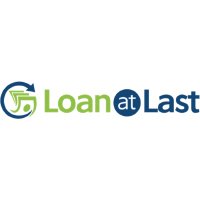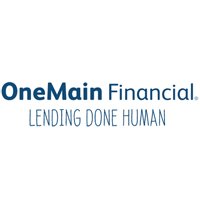Home Loan Information One Can Make Use of
This is where home loans come in handy. To understand how to get a home loan, one should know that it is also called a home mortgage, an agreement signed between a creditor and a financial institution making it possible for the debtor to get money to obtain a home, condominium, or any other form of structure to live. Generally, the debtor is expected to repay the given amount throughout ten, fifteen, or thirty years.
How Do Home Loans Operate?
There is no denying that for many individuals, purchasing a home is among the most phenomenal decisions they will ever make. And since acquiring a home is an expensive venture-usually costing thousands to millions of monies, a large proportion of folks cannot pay cash for the whole home upfront. As such, the next thing they think about is taking a house credit either from traditional banks, online home loan lenders, credit unions or opt for specialized creditors for people with low incomes and bad credit, e.g., VA, USDA or FHA.
There are different home loans that a borrower can opt for. Nevertheless, every type of lending is influenced by the following factors:
This is the full value of the credit you are taking. It doesn’t include other costs such as closing costs, home loan insurance, and any fees that the credit attracts.
The duration you are allowed by the creditor to repay the principal value, interest rate, and any fees accrued. It usually spans from five to thirty years.
Also termed as APR. It is the total charged by the creditor to the mortgagor for using the borrowed cash over a given period. It is usually obtained as a proportion of the principal value.
This determines how frequently the loan would be repaid in terms of installments. Mostly, the repayment frequency for a home loan is typically bi-weekly or monthly.
So, how do home credits work? Here is a classic instance to illustrate that to you. Let’s assume you have spotted a house that will cost you $400,000 to buy. Since you don’t have enough money to pay cash, you place a down-payment of $100,000 on your new home. Now, you need to fund the remaining $300,000 by borrowing from a bank.
After shopping around, gauging different lenders in the market, eventually, you get one that accepts to approve a credit of $300,000 for you. The payment of this loan is spread across the period of 30 years (term), and the lender will charge you 5% for the duration you will be using the money (interest rate). As well, you agree that you will be paying the calculated installments every month (repayment frequency). By inputting these figures into a mortgage calculator, the installment, in our case, would be pegged at $1,610.46 each month.
However, remember that this figure doesn’t include property insurance, property taxes, and separate house credit insurance, which usually fluctuate contingent on the home’s property tax fees. The final reimbursement value will consist of these costs.
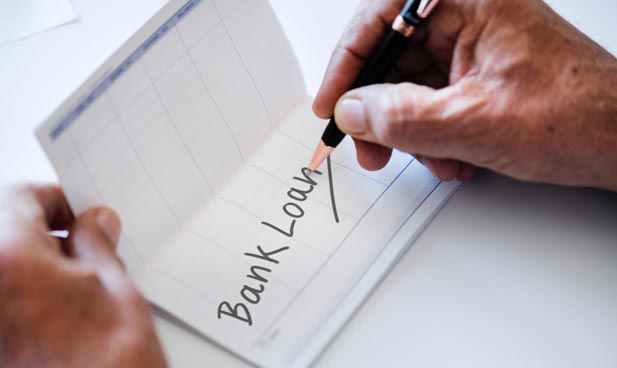
Different Types of Home Loans Provided by Financial Institutions
Mortgages are designed to meet various needs of borrowers and budgets, and therefore can be in numerous varying types. Here are different home loans that an individual can apply for:
Fixed-Rate Loan
Most folks who search for home loans prefer this type of mortgage. With this type, the person pays the allotted amount for a fixed period and also defined interest rate. Simply put, the term of the credit and also the interest rate charged are not variable. Hence that gives predictability of what you should pay as installments. However, when taking this lending, you ought to be keen, particularly in selecting the repayment terms. Usually, with longer terms, you end up paying more.
Who is well-matched for this loan? It is ideal for folks who anticipate living in a given area for a substantially long time, and they don’t have plans to go anywhere soon. You agree to pay K amount for M years, and that is all. The market rates fluctuations don’t affect your lending, and you know the fraction you should pay regularly. If you don’t plan to live in a particular place for a considerable chunk of time, then you should move on to the next type of loan.
Adjustable-rate Mortgages
As opposed to fixed-rate home loans where the rates and term are foreseeable, this is unlikely for the variable-rate mortgage. With an ARM, the lender agrees on variable interest rates that are determined by the fluctuations in the money market.
Hybrid Variable-Rate Home Loan
When you want to enjoy the features of an ARM and a fixed-rate loan, then consider this kind of lending. It works like this; you pay a fixed interest rate for a stated period, and when that time elapses, the rates are left to adjust depending on the prevailing rates in the market.
FHA
While most loans demand a down reimbursement of at minimum 20% the principal value, with Federal Housing Administration loan, you can pay as low as 3.5% as a down payment.
This is an appealing option for individuals with low savings who cannot afford down payments. However, there is a catch. The maximum amount you can borrow is capped at $417000. It also provides fixed interest rates; hence, you don’t enjoy much flexibility if that is what you are looking for. In addition, you are obliged to pay for the home loan assurance fee, though you can opt to pay it throughout the entire period.
USDA Loan
If you live in a remote area and you want a home credit, turn to USDA loans. They are backed up by the federal State. You will not be asked for the down payment, and they attract friendly rates compared to those charged on conventional loans. You will only pay for the costs such as mortgage insurance. Nevertheless, there are some restrictions on what you can be given. Generally, the amount you apply for should not be higher than your earnings by 40%.
How to Get A Home Loan: Critical Home Loan Information for You
The process of getting a home loan is not as complex as many folks believe. However, before you apply for a mortgage, some things need to be put in order to ensure the success of your bid (we will discuss them here).
To get a home credit, the person wishing to own a home must apply for a mortgage either via a credit society, online home loan lenders, a bank, or any other money lender that offers the best home loans. You can also consider mortgage brokers. Mortgage brokers usually take applications to different financiers and ultimately, present to you the most exceptional deal they can find in the real estate market. Occasionally, it is recommended to work with brokers. But you need to be cautious as some phony brokers might charge exorbitant fees and end up making the cost of the home credit so high.
When you send a request to a particular lender, the primary thing they will want to do is to assess your financial standing. That may not be a pleasing thing for most of us. Here, the lender examines your credit-score, net worth, yearly earning, down payment, and debts.
If the creditor gives you the green light for the credit, the next critical step that the moneylender takes is to establish the actual value of the house you wish to buy — the creditor orders for a valuation of the structure. Bear in your mind that you would be wanted to cater for the review fee despite the fact that it is not your decision to have the structure appraised, but your moneylender’s order.
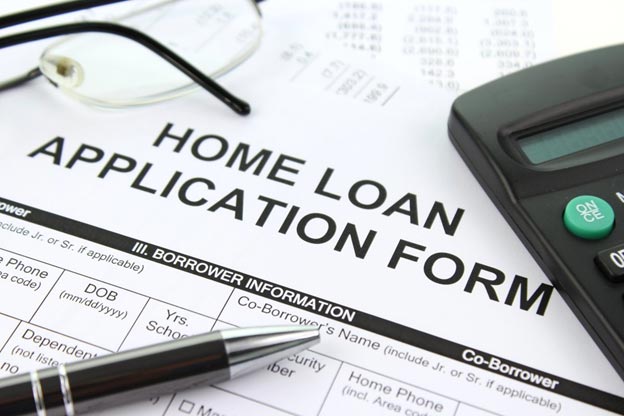
In addition to this, they may ask you to fund the filing levies, mortgage points, miscellaneous levies, and any other fees during the application process. That also varies from one financial institution to another. The fees charged are generally required to be paid upfront. The interest rates imposed on the total loan is designed to be paid off over the period.
Quick Terminologies You Should Learn
The success in anything depends on the level of preparation you have done. That implies if you want your home application to be stress-free, and succeed, you need to do some preparations, and that includes understanding some jargons you will use during the negotiation:
- APR / APY; this percentage shows the real interest the borrower would pay each month if he takes the loan. As a debtor, this is the value you are supposed to be more concerned about since it shows the actual cost of taking the loan. It also incorporates any other fees associated with the loan.
- Loan Term; the period you are supposed to pay the entire principal amount and interest rate altogether. For most credits, the maximum term is thirty years.
- Credit Score; basically, a number obtained by credit reporting entities for each individual, which reveals the credit history of a debtor and the probability of the individual to pay back prospective debts. The credit score is influenced by the past payment history of the person, debt-to-income share, and more. The credit ranges from 300- 850, with people with the highest score deemed desirable pledgers by financial firms. In most cases, people with a credit rating of 650 and above can be considered for a home loan. If your creditworthiness is below 650, banks may consider you unfit for their credits. If this occurs, you can consider applying for home loans for bad credit.
- Loan-To-Value Ratio; this is the ratio obtained by monetary institutions to determine the amount of down payment one is entitled to pay. This ratio is reached by dividing the total mortgage applied for with the evaluated value of the structure.
- Debt-To-Income ratio; definitively, it is the ratio utilized by banks to come up with a person’s monthly cash flow. Mortgage financiers will usually calculate two versions of the debt-to-income ratio. The first one is obtained by dividing the overall monthly debt commitments of the borrower by his/ her total earnings per month minus taxes. This ratio ought to be at least 40% or below. Alternatively, the provider might obtain the rate as explained in the first point. But rather than incorporating all the debt responsibilities of the mortgagor in the calculations, the lender puts into account only the total monthly mortgage installments.
- Closing Costs; the borrower is obliged to pay “closing cost” after the lender approves the loan, and it is ready for payout. The payment varies, but be prepared to pay anything between 1%-5% of the home value. To illustrate this briefly take it that you have been approved for a $300,000 mortgage loan, you will pay a closing fee of roughly $3,000 to get monies into your account.
The closing cost encompasses different expenses from Federal fees to title and assessment fees to property surveying fees. You might also be requested to pay more fees for your home to be inspected by a home inspector and pest control expert.
There are two ways borrowers can choose to pay the closing cost. First, they may pay the full amount upfront. Second, they may decide to roll the cost into their principal amount and pay it off over the universally agreed term of the lend.
Tips on How to Be Eligible for Mortgage and Be Approved
Getting a structure that you can call home is a dream come true for many individuals. However, finding your dream home is just one simple step over out of many steps you are required to take. One of the critical steps to take is selecting the right home loan. We have listed some of tried and proven undertakings that will come in handy when you want to find the best mortgage and get approved for it:
Any home loan will require that you pay some amount as a down payment. If you have decided to own a home, you need to save enough money for a down payment of your lending. Depending on the lender and amount you want, you will pay anything between 2.35%-20% on the down payment. So, plan well how to set aside this amount, and before long, you would have sufficient cash for that purpose.
Undoubtedly, the credit score plays an essential role in determining your suitability for a mortgage and also how much you can get. For this reason, before you start on your application process, it is prudent to know where you stand in terms of your creditworthiness. To find out about this, get a copy of your credit profile from the main credit reporting organizations such as Equifax, Experian, and TransUnion. From your credit profile, you will be able to make an informed decision. If your credit score is unappealing to lenders, you may want to consider bad credit home loan lenders.
The process of home credit application is a lengthy one. The creditors will need all the necessary financial documents to process your home loan. To facilitate the process so that you can reach the closing quickly, you want to keep all the financial papers in order before placing your application. Some of the financial docs you should prepare to include the tax-returns for the previous twenty-four months, recent brokerage, last three months payrolls, and the up-to-date W-2.
A mortgage calculator is one of the essential tools when working on your home lending. It shows you how much interest you would be required to pay off if you take a certain amount of money for a given period. It also shows you the installment you will pay. With these figures, you can make the right decision, and get a credit that you will be comfortable repaying.
Home credits are different. Even though a mortgage attracts the same interest rates, there will always be that one aspect that makes one loan more costly compared to another. As such, it is imperative to be conversant of the determinants that affect the cost of home credits so you can choose wisely from different loans offered by financiers.
Interest rates play a fundamental role in determining the total cost of your loan. Mortgage interest rates change almost every day, and it makes sense to track and understand which way they are going. That will also influence the type of home mortgage you will apply for.
Most real estates require that you get a pre-qualification for credit before they can think about working with you. It is simple to get prequalified. It just requires you to provide some financial data such as investments, savings, income, and the debt you have. After pre-qualification, you get a real picture of what you are capable of borrowing and repaying, and hence choose the right home considering your financial position.
Perhaps your parents had a 15-year fixed loan. Maybe your colleague has a hybrid-ARM loan. That does not imply that you should too follow suit and get the credit your parents took – it might not be the best one for you. You might be attracted by the lower initial installments of ARM loans. Besides, different people have varying financial conditions, and it is, therefore, essential to know which kind of home credit is ideal for your needs and financial requirements.
After the application is over, your financier may request you to send additional home loan information. In such cases, respond promptly, and if there is any paperwork that you need to return, do so quickly. Any delay in providing these essential documents might result in delays in the processing and closing of your mortgage application. This may cause issues with the property you intend to purchase. Don’t risk losing your preferred property, as well as your down payment for being lazy and disorganized.
You will not be surprised when your lender performs a hard inquiry second time on your credit profile before closing the processing. So, you need to keep off from doing things that might affect your credit rating negatively during the time of processing. So, you want to ensure that all the bills are paid on time, don’t get new credit cards, and don’t apply for another loan, e.g., car credit until you have received your mortgage.
Bad Credit Home Loans
Getting home loans for bad credit is not like taking a walk in the park. Eleven years ago, since the financial crisis of 2008, the sub-prime loans have not been forthcoming. However, there is a way out. There are mortgage lenders that allow you to take a home loan even with poor credit.
But before looking at these lenders let’s have a peek at some essential aspects you must know about poor credit home loans. Is it a good idea to apply home loan bad credit even if you can find lenders to approve the loan for you? What are the caveats for taking these loans? We explore everything here.
You Can Get Home Loans for Bad Credit, But Is It Advisable to Take Them?
Purchasing a home through a mortgage can be an excellent investment. However, it can turn to haunt you financially if you don’t get the right mortgage.
It is possible to find credit home lenders in the financial market. But you should take it as a serious undertaking to know what you need and avoid mortgages that will trap you in an ending poverty cycle.
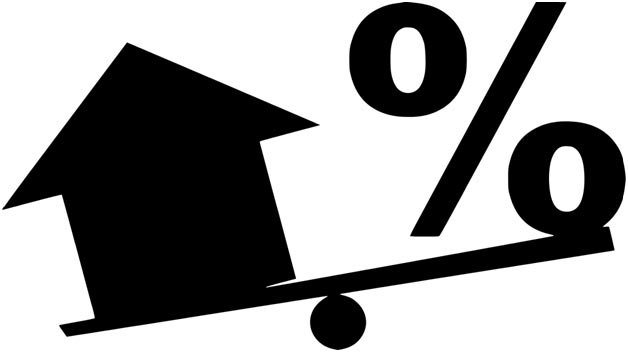
When Is Your Credit Score Considered Too Low to Be Approved for A Home Loan?
The first thing a lender will do when you apply for a home loan is to perform a hard inquiry. One of the main things that they evaluate carefully is your credit score. Typically, the credit score spans from 300-850. The credit score usually gives you a peek of your financial attractiveness to potential lenders.
A score of over 650 and above is considered the best score, and folks with this credit rating can get appropriated for home mortgages with best interest rates.
However, if your credit falls below 650, financial institutions will not be willing to provide you with a home loan. Those who approve you usually will charge you extravagant interest rates. It even gets worse if your credit score goes below 620. Here you will find it tough when applying for loans from any lender.
While you may find some lenders who will be willing to give you home loans regardless of your unattractive credit score, such loans usually attract abnormally very high-interest rates. In some cases, borrowers are unable to pay these loans and end up defaulting them. Since applying home loans for bad credit could imply that you can only be approved for a credit that you will strangle to repay, it makes sense to work on your credit rating first to make it better before applying for a mortgage. But in case you have made up your mind, here are some options you might consider:
FHA Home Loans
Some years ago, you needed to have a credit score above 640 and a good and reliable income to be considered for a mortgage loan. As such, mortgages were a preserve for a few and many buyers especially first-timers with poor credits could access mortgages. This trend changed in 1934 by the creation of the Federal Housing Administration, which was designed to increase the number of homeowners in the US.
It is simple to get approved for FHA loan compared to the commercial home loans since FHAs come with lenient requirements. The phrase “bad credit home loans” usually means FHA home lending or in other words, the subprime loan.
Credit Requirements for FHA Loan
Since FHA credits are insured, they are less dangerous for financial institutions. As such, the lenders can lower the requirements.
You can get approved for these loans even with a credit score as low as between 500-579 with a down payment of 10% and a credit score of 580+ with a down payment of 3.5%.
Grants and Down-Payment Aid
You can be approved for Government Grants and down-payment aid. You can access the HUD site and check these local federal programs.
VA Home Loans
They are meant for veterans. They have many advantages, notably no down payments and no home mortgage insurance. Usually, they don’t have any set minimum credit rating, but many creditors will ask for a credit score of 620 or higher. However, some ask for a 580 credit rating.
These are some loans you may consider if you have bad credit. There are many more.
Compensating Factors for Poor Credit
If your credit rating is on the left side, then you need to provide some supporting factors that make the lender at least confident when giving you a home loan.
You might also be required to prove that the financial crisis was the reason behind the falling of your credit score, and you have gotten up and re-rooted your financial stability.
These factors minimize the lender’s perils and boost your probability of being appropriated home loans for bad credit.
They include:
- Significant down payment of 10% and more;
- A considerable amount of time with the current employer;
- High income;
- Paying substantial rent;
- No payment defaults;
- Low debt-to-income ratio;
- No unpaid debts.
What to Do to Enhance Your Chances of Approval for Home Loans for Bad Credit
If you need to get a substantial home loan amount with poor credit, there are some things you can do to boost the probability of your success.
- Save a considerable amount of down payment; if you save a significant amount of money to fund a down payment, the lender will be less reluctant to approve you for a loan.
- Increase your credit score; this is, without a doubt, the most straightforward way to make yourself appealing to potential lenders. You also stand a chance to get better interest rates and terms. To promote your credit rating, access your credit report from credit reporting bureaus such as TransUnion, and check if there are any mistakes. If they are there, dispute them. You may also want to pay off all your outstanding debts and also pay your bills on time.
- Get a cosigner; a cosigner is normally a person who shoulders the financial obligation of a borrower who defaults payments of a loan. However, it is not always easy to get a cosigner, since in the event you are not able to repay the mortgage, the lender tries to recover his/her money from the cosigner. However, some family members and allies might be ready to take the risk.
- Pay off all the debts; income to debt ratio is one of the main tools used by financial organizations to gauge your suitability for a loan. If you can reduce or eliminate all your outstanding debts, and you have a high income, you can get approved quickly.
First Time Home Buyer Loan
Applying for the right home loan is always an essential thing, and that comes in handy, especially for first-time home buyers. First-time home buyers are just establishing their financial credit. So, there is a home loans program designed for them that offers down payment assistance and easier approval.
While first time home owner loan might sound appealing to you, it is not always as it seems. The credit usually has some strings attached and might be fit for you or not.
What Is a First-Time Home Buyer Loan?
First time home buyers loan is credit designed to aid folks to own homes, normally in particular geographic locations. The programs might vary subject to your area of residence and what you can afford. But their rationale is to offer financial help to qualified individuals with desirable credit rating. First time home owner loan has several advantages that include:
- Down payment: the buyers are allowed to make small down payments, or sometimes there is no down payment needed.
- Interest cost: the institutions subsidize the interest rates, and they can assist a person get home loan first time buyer with the lowest interest rate. This gives the borrower a more manageable repayment of monthly installments.
- Grants: the borrower can get grants, which are free finances which can be used in closing cost, remodeling of the property after buying or in down payment.
- Loan forgiveness: sometimes you may benefit from total cancellation of the home lending debt or cancellation of a certain percentage of the mortgage. This basically takes place for a substantially extended period to make the owners of the property to stay there for a long time.
- Aid with fees: restrictions on the total cost the creditors are supposed to charge during the closing of the loan.
First Time Home Buyer Programs
If you are wary of renting, perhaps this is the right time you should be thinking about getting your first home buyer loan. There are many myths and misconceptions surrounding acquiring a home for the first time, but most of them are worth to be thrown through the window.
You don’t have to save enough money to pay for the 20% down payment or have an incredible credit rating to own your first home. There are numerous first-time homebuyer programs and also grants that can assist you in getting the funds you require to buy your first house.
Federal Housing Administration (FHA) Loans
FHA credits are some of the best options first-time homebuyers with bad credit can opt for, or individuals who cannot afford 20% down payment. The State normally supports these credits.
For individuals with a credit rating of at least 580, they can be proved for a home loan with a down payment of as low as 3.5%. For those with a credit score of between 500-579, you can be appropriated for a loan with a down payment of 10%. However, you will need to pay a higher interest rate.
FHA First Time Home Buyer Loan Requirements
To be considered for FHA first time home buyers loan, you need to meet the following minimum requirements;
- You should have a stable employment history of a minimum of two years.
- You intend to use the house as your primary residence.
- You are ready for an FHA home appraisal.
The best thing about FHA is that you can be approved for it even if you had filed for bankruptcy, as long as you did it at least 24 months ago. Nevertheless, you will be needed to cater for PMI. If your LTV is below 90% at the time of closing, you will be required to pay for the PMI for the entire term of the credit.
FHA loans vary depending on your residence area.
Energy Efficient Mortgage Program
When it comes to the EEM program, any energy-efficient improvement you make in your home is factored in the cost of the loan. Though this doesn’t affect the monthly installments, it has a reducing effect on the total price you finally repay the loan. You want to consult with your creditor to know how much EEM you are eligible for.
Fannie Mae
When it comes to the FM program, any energy-efficient improvement you make in your home is factored in the cost of the loan. Though this doesn’t affect the monthly installments, it has a reducing effect on the total price you finally repay the loan. You want to consult with your creditor to know how much EEM you are eligible for.
HomeReady Mortgage Program
With HRM, the borrower is expected to pay down of 3% and also PMI is needed. It is suitable for first-time home buyers loan for individuals with a credit rating of 620 and above. You may get the best mortgage interest rates if you have a credit score of at least 680+.
97% LTV Mortgages
This is the best first time home owner loan if you need to purchase a property, but you cannot afford the 20% for the down payment. It allows you to take down as low as 3% on payments.
However, this kind of credit lacks flexibility and only offers its borrowers fixed-rate mortgage. Besides, the structure you want to purchase should be your prime residence and not a structure for investment purposes.
Home Possible Mortgages
First-time homebuyers can either opt for 97% LTV Mortgages or HPM loan. Both options offer competitive rates and friendly down payments. Besides, you are allowed to cancel your credit if the loan value reaches 79% of the appraisal value of your home. And for folks without any credit score, they can get the lending for as low as 5% down payment.
Veterans Administration Credits
If you are a veteran or surviving couples, this program is designed for you. It is the best new home buyers loan since it offers ridiculously low upfront cost. It doesn’t demand any down payment or any PMI. Most people who qualify for it usually have a credit rating of 640+.
National Homebuyers Fund
The NHF is designed for low-income individuals that require assistance with the down payment. The moment you get an authorized lender, the NHF offers you a grant of 5% maximum on the home mortgage value. The grant is not meant to be repaid later, but the lender imposes income requirements contingent to the prevailing housing market and your area of residence. If you want to apply for it, check with your lender and he will help you to know if you are eligible for the grant.
Home Loans Near Me
With the complexities involved when taking out a home loan, you’d be sorry to assume that it is not possible to just search for a “home loan near me” and find helpful results. Well, things have changed and certainly, borrowing has become more convenient.
If you’re looking for home equity loans near me, chances are you’re not looking for a mortgage but a second mortgage that allows you to take out the equity you have in your home. You don’t have to visit a bank in-person nor engage a mortgage broker over the phone. Finding a good home loan can be done online, and with CashSpotUSA you have your work cut out for you.
For home loans near me, simply apply through this site. Once you send your application, you’re matched to lenders based on your zip code, meaning that you don’t have to walk into physical locations near you just to find credit.

